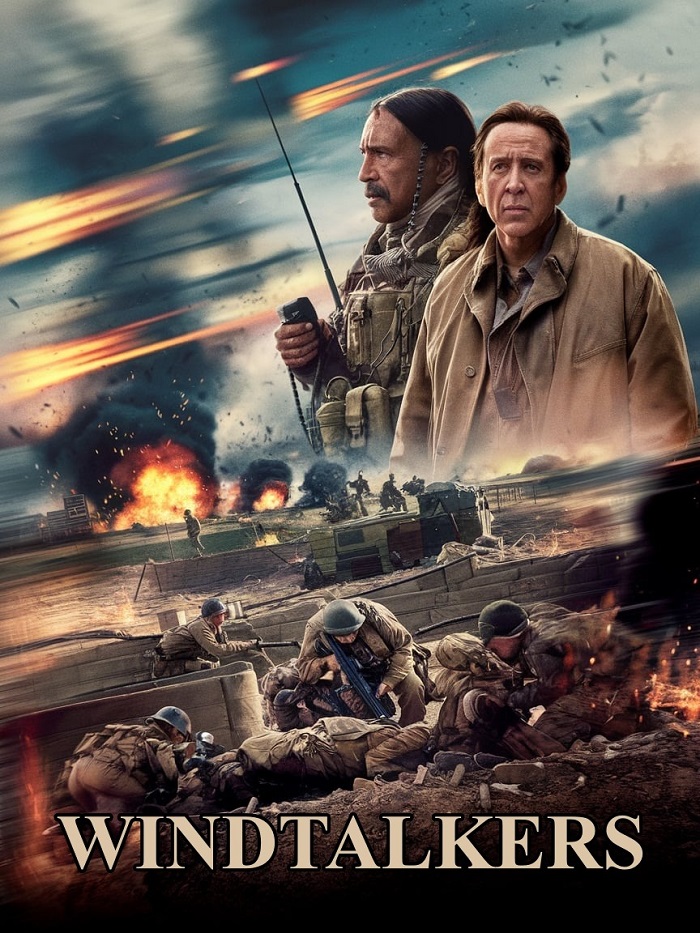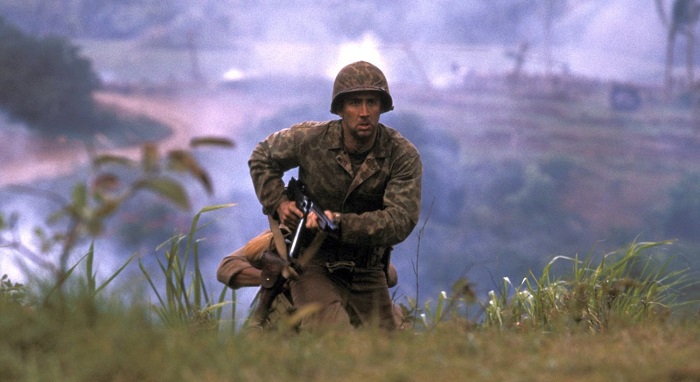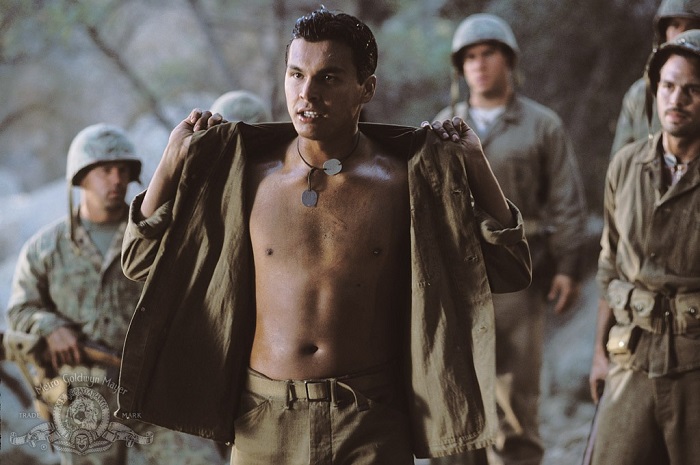Windtalkers (2002)

Windtalkers (2002) is a gripping war film directed by John Woo that explores the untold story of Native American soldiers during World War II. Set against the backdrop of the brutal Pacific Theater, the film focuses on the unique role of the Navajo Code Talkers, who used their native language to create an unbreakable military code. With intense action sequences, emotional depth, and themes of sacrifice and loyalty, Windtalkers offers a powerful exploration of heroism and cultural identity during wartime.
The film follows the story of two U.S. Marines, Joe Enders (played by Nicolas Cage) and Charlie Whitehorse (Adam Beach), who are assigned to protect a group of Navajo Code Talkers during the Battle of Saipan in 1944. Enders, a battle-hardened and emotionally scarred soldier, is tasked with ensuring that the Code Talkers—whose job is to transmit secret military communications using the Navajo language—are kept safe from the enemy and from the increasingly dangerous war zone. However, he is also given orders to eliminate the Code Talkers if they are captured, to protect the code at all costs.

As the soldiers engage in combat, Enders forms a bond with Whitehorse, a young and idealistic Navajo man who views his role as a patriotic duty to his people. The relationship between the two men evolves as Enders struggles with his brutal orders and his growing respect for the Code Talkers. Meanwhile, the Japanese forces relentlessly pursue the Code Talkers in an effort to decipher the crucial code. The film showcases the deep psychological and emotional toll of war on the soldiers, particularly Enders, who must reconcile his sense of duty with the personal connections he forms on the battlefield.
In the final, devastating battle, Enders must make a choice between following his orders and protecting his comrades, all while grappling with the harsh realities of war and the sacrifices that come with it.

Themes and Style Windtalkers highlights themes of sacrifice, loyalty, and cultural identity. The film explores the tension between duty to one’s country and the personal bonds that form in the heat of battle. It also sheds light on the often-overlooked contributions of Native Americans in the war, particularly the Navajo Code Talkers, whose role was critical to the success of U.S. military operations in the Pacific.
The film’s action sequences, directed by John Woo, are intense and immersive, capturing the brutality of the battlefield. The use of slow-motion shots and dramatic fight scenes adds a visceral quality to the war experience, amplifying the stakes and emotional impact. While Windtalkers is marked by its harrowing depictions of war, it also emphasizes the humanity of the soldiers, particularly through the relationship between Enders and Whitehorse.

The cinematography and pacing contribute to the film’s sense of urgency, with a focus on the chaos and confusion of war, as well as moments of quiet reflection. The film juxtaposes large-scale military action with intimate, character-driven moments, highlighting the personal sacrifices and struggles of those involved in the conflict.
Ultimately, Windtalkers is a poignant tribute to the courage and resilience of the Navajo Code Talkers and a reflection on the human cost of war. It showcases the importance of honoring cultural heritage and the deep sense of duty that transcends national borders, making it a memorable and thought-provoking war drama.